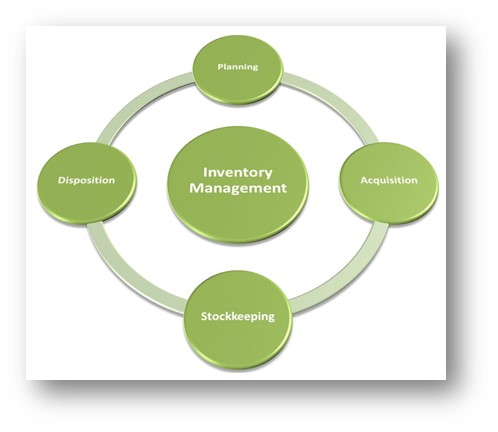I have long been convinced that the role of inventory management (and the inventory managers themselves) is undervalued in most organizations. Typically, those responsible for inventory management manage one of the enterprise's top-valued assets on the balance sheet.
Yet, sadly, the management of this high-value asset is left mostly to unplanned, non-strategic evolution and seat-of-the-pants reactionary decision-making in far too many cases.

Writing in the "21st Century Supply Chain" blog at the Kinaxis Supply Chain Expert Community, Andrew Dunbar put his finger on precisely why inventory management is so elemental to the health of the overall enterprise. He writes, "Inventory management is not a stand-alone business process that occurs after other processes are complete. It is a high-level process that should be integrated into other supply chain planning processes including, at a minimum, sales and operations planning (S&OP), master production scheduling and supply action management. Inventory managers should support multiple business objectives and should have business integrated targets related to inventory levels, total inventory cost, and inventory quality." [*]
Inventory management in the supply chain should be strategic as well as tactical. After all, inventory management governs most of where variability in supply and demand will accumulate, and where it will be either stopped or passed along. If the variability is stopped, stopping it will tend to dampen or eliminate the bullwhip effect up and down the supply chain. If it is not stopped, then it is likely that variability elsewhere in the supply chain will be amplified.
Strategic inventory decisions also determine how, when and where lead-times are decoupled in order to meet market tolerances or provide strategic or tactical advantage to supply chain participants.
Most importantly, the strategic management of inventory as a high-value enterprise asset determines just how much return on investment (ROI) is garnered by the dollars invested in inventory. This is crucial to ongoing success.
So, perhaps it time to stop allowing inventory to be managed in an unplanned, non-strategic, seat-of-the-pants reactionary way. What do you think?
[*] Dunbar, Andrew. "The Future of Inventory Management." Kinaxis Supply Chain Expert Community. July 23, 2015. Accessed July 24, 2015. https://community.kinaxis.com/blogs/21st-century-supply-chain/2015/07/23/the-future-of-inventory-management.
[feature_box_creator style="1" width="" top_margin="" bottom_margin="" top_padding="" right_padding="" bottom_padding="" left_padding="" alignment="center" bg_color="" bg_color_end="" border_color="" border_weight="" border_radius="" border_style="" ]
Demo Replay: Sage Inventory Advisor
Want to learn more about Sage Inventory Advisor? In this webinar we will break down the key components of Inventory Management.
Replay on RKL YouTube Channel
<
[/feature_box_creator]



